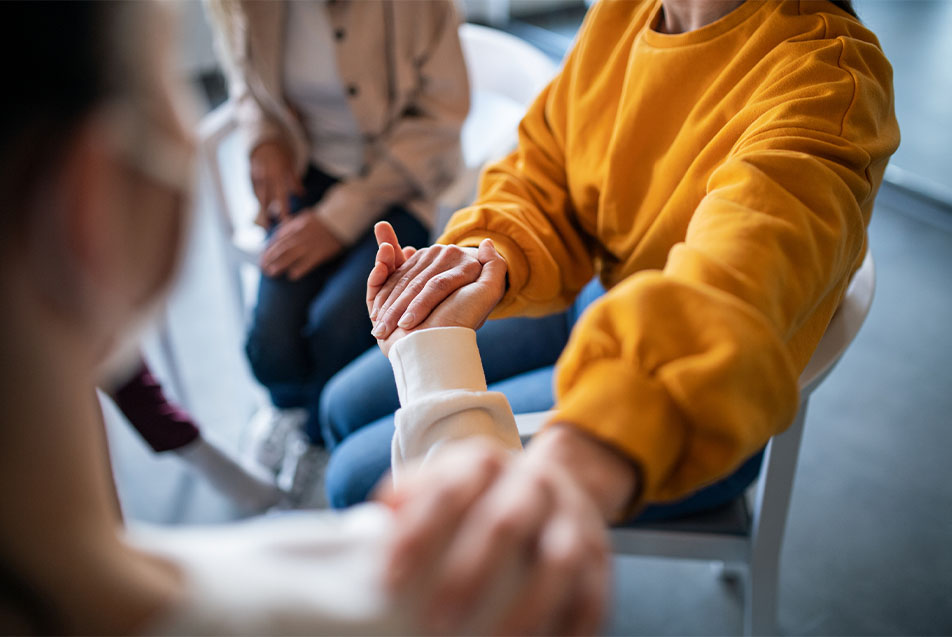
Stopping dependence on alcohol or other substances can be difficult, and finding the proper support is crucial. Tabitha Hackbush, MSW, LSW, therapist, Park Center, Parkview Behavioral Health Institute, and Shannon Reinbold, RN, coordinator for Medical Detox services, Parkview LaGrange Hospital, help shine a light on the medical detox and peer recovery support programs offered at Parkview LaGrange Hospital. Visit the blog to find out how they can help jumpstart your recovery process and journey to a healthier life.
What is medical detox?
Medical detox provides a safe way to manage withdrawal symptoms from alcohol or other substances and encourages long-term sobriety. Some substances, like alcohol, can be fatal to withdraw from without medical supervision. After the body becomes physically dependent, it can be very painful to withdraw from it and greatens the likelihood that the individual will continue to use it to suppress these symptoms.
What is peer recovery support?
Peer recovery is an evidence-based program that utilizes community members who have battled with their own mental health or substance use and are now in remission, ready to assist others who might be struggling. Traditionally, this is in mutual aid groups like Alcoholics Anonymous (AA), Narcotics Anonymous (NA) or Parent Café. However, many agencies have begun to adopt this programming within the clinical setting, creating a diverse team to serve patients more effectively. Parkview Behavioral Health Institute is one of those agencies.
Why would someone need these services?
Recovery is HARD! Fighting every day to rewrite the effects of substance use on the brain and body takes a lot of practice. Trying to do it all on your own is daunting and overwhelming, which is why connection is the best way to overcome addiction. Decade’s worth of research supports this theory. Anyone struggling needs these services, so they’re not alone and can overcome this disease.
What is the objective of medical detox and peer recovery support programs?
The goal of these programs is to come together to support the community and individuals dealing with mental illness and substance use. The majority of patients struggling with substance use disorder also grapple with various other mental illnesses, like post-traumatic stress disorder, bipolar disorder and several others. Their addiction usually began as a way to cope with these underlying conditions. Through these programs, we can holistically treat our community’s needs.
What are the benefits of each support service?
I greatly appreciated the teamwork between the Peer Recovery Team and the Parkview LaGrange Medical Detox Services. Working together can get community members in the hospital quickly for the treatment they need and then follow up with continued care once they’re back home. In some programs, patients are left with phone numbers to call and seek outpatient treatment independently. But through this partnership, my co-workers and I can follow up with individuals, help them navigate resources within the community, and provide skill-building, care coordination, and therapy services to bridge any gaps.
How do the team members for each program work collectively to support patients?
Working together through a secure documentation system has been a great resource! We regularly discuss a patient’s needs and work collaboratively to meet those needs. Unfortunately, many rural communities don’t have the same resources as urban settings. But with this partnership, we can prioritize the needs of our community while collaborating with other agencies in surrounding areas as well.
How does this collaboration benefit patients on their health journey and road to recovery?
In every way possible! This collaboration allows patients to have both their physical and mental health needs met. These programs are also voluntary. Patients are not required to work with us. This allows us to work at their pace and readiness, building a solid foundation for ongoing recovery on their terms and in their way. It’s very empowering.
How can someone take advantage or enroll in these programs?
If you or someone you know needs support, Parkview LaGrange offers voluntary inpatient Medical Detox services to help start the recovery process; no physician referral required. For more information, please call 260-463-9257. Medical detox services are also available at Parkview Wabash Hospital. For Peer Support Programs, please contact our office at 260-347-4002. Self-referrals welcome!



